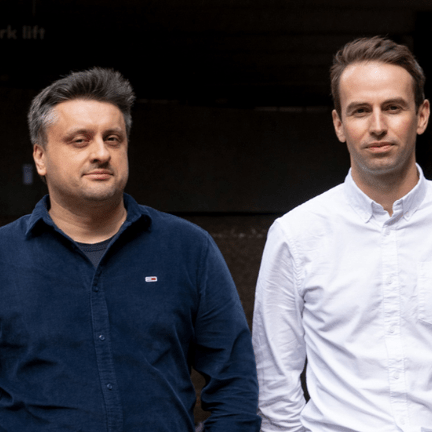- London-based Refute raises £2.3m in a pre-seed round led by Playfair and Episode 1, with participation from Notion Capital and Amadeus Capital Partners
- Disinformation is now a Board level risk, with companies in high-risk industries the target of disinformation campaigns, resulting in devastating impacts to companies’ reputation and valuation
- Commercial organisations are vulnerable as they are not protected by government regulations, and attacks have far reaching societal impacts including health, climate change, economic growth and crime
Refute, the London-based company fighting disinformation on behalf of commercial organisations, detecting and responding to campaigns at the speed of the attackers, today announces that it has raised £2.3m in a pre-seed round led by Playfair and Episode 1, with participation from Notion Capital and Amadeus Capital Partners. Refute also received angel investment from experienced tech investors Charlie Songhurst, Carlos Espinal, James Chappell and Alastair Paterson.
Disinformation attacks have become a Board level concern, fuelled in recent years by both growing geopolitical instability and widespread use of generative AI to create and propagate disinformation. Whilst government regulation aims to tackle disinformation, it does not currently cover the broad spectrum of attacks on commercial organisations, which are increasingly vulnerable to the reputational and financial impact of disinformation campaigns. Fundamentally, disinformation damages the underlying fabric of society, impacting global issues including health, climate change, economic growth and crime.
The most damaging disinformation takes the form of sophisticated campaigns which focus on the company, their executives and the supply chain. Threat actors are often state sponsored or commercial competitors, and even people taking advantage of an opportunity to make money. These campaigns are coordinated across channels including news, social media, blogs and forums.
Tom Garnett, Co-founder and CEO at Refute says, “Commercial organisations are largely unprotected from disinformation campaigns, which can have devastating consequences on the resilience of society. Companies can lose out on contracts worth many millions, or see their valuations reduced significantly. By protecting organisations from malicious coordinated attacks, we are implementing a line of defence for all stakeholders involved in these essential services.”
Vlad Galu, Co-founder and CTO at Refute says, “Having spent most of our careers improving the resilience of the internet and the identity trust models that underpin it, we are uniquely positioned to solve the global threat of disinformation. We look forward to bringing our distinct approach to our design partners and early adopters, and building on their feedback to create an unparalleled disinformation defence ecosystem.”
Refute takes a quantitative approach to discovering and fighting disinformation campaigns, fusing together interconnected data and tracking narratives across multiple channels. Using this data to model and score threat behaviours, in context and over time, it enables effective in-channel response at the speed of the attackers. Refute allows companies to discover attacks earlier, uncover any under-the-radar attacks, reduce the noise of false positives, and optimise an organisation’s response to cross-channel coordinated campaigns.
Andrew Sheffield, VC Principal at Playfair Capital says, “The information landscape is changing: it is harder than ever to tell fact from fiction, and the cost of spreading misleading content continues to fall. The World Economic Forum cited disinformation as the number one global risk in 2024. Tom and Vlad possess forty-plus years of experience in data analysis, cybersecurity, tackling terrorist attacks, identity management and money laundering. We believe they are perfectly placed to tackle this important global issue and are excited to be on the journey with them.”
Simon Murdoch, Managing Partner at Episode 1 says, “Generative AI has presented the opportunity to create falsified information at scale, enabling large-scale disinformation attacks to be deployed quickly and cheaply. However, this same technology can be utilised as part of the solution, resulting in a step change in capability for detection and response.”

